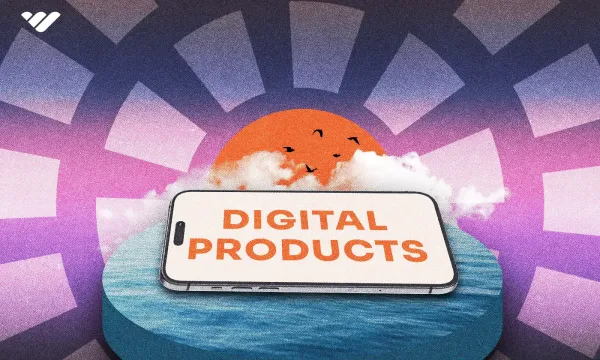Writing and selling ebooks can be hugely profitable, and the market is still on an upward trend. It's projected to reach $22.4 billion in 2024 and is also expected to grow at a 10.08% CAGR until 2028.
The good news?
A booming market means that selling ebooks can be anything from a side gig to a full-time job, especially if you use Whop. The bad news? Your competition is steep, so you need to know how to sell your work to start making money.
In this guide, I'll tell you everything you need to know about marketing your ebook and share 20 of the best strategies to make sure you get the recognition and the profit you deserve.
Why marketing your ebook is key to its success
You might be wondering why marketing is so important. If you have solid writing skills and you're confident in your product, shouldn't the audience just come to you?
That'd be lovely, but sadly, not all ebook authors get recognition right away. This is especially true if you're writing in an oversaturated niche. Romance fiction, cookbooks, business or entrepreneurship guides, self-help, and fitness or diet books all fit into that category.
No matter the quality of your writing and the platform you sell through, certain niches are just harder to break into. Meanwhile, less saturated niches mean that you might not have as many customers to begin with, so marketing is still crucial.
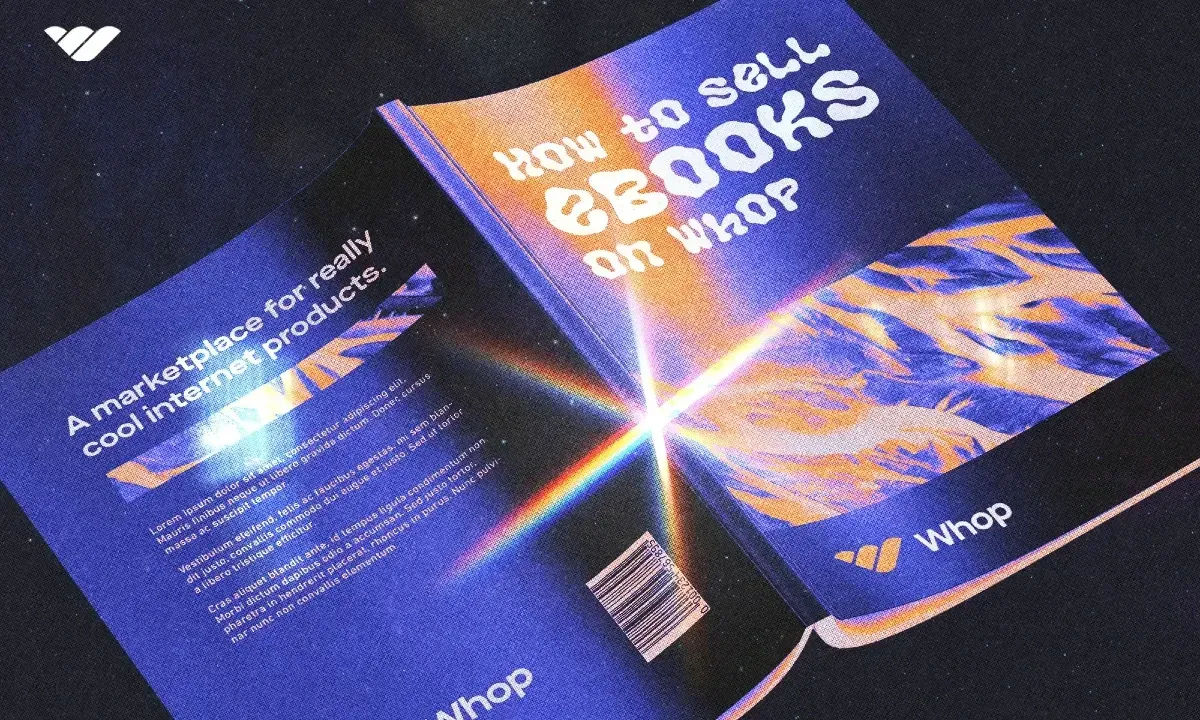
One of the best ways to combat this and stand out on any platform is to have reviews. Reviews build your credibility, help you appear closer to the top of algorithmic searches, and can influence the buying decisions of other readers.
Getting reviews and sales is hard if you're just starting out in the writing world, which is why marketing is so crucial. Once you get your foot in the door and start getting some sales, it'll be easier to build upon that foundation and succeed even more.
This makes ebook marketing an ongoing process and an important part of making money as a content creator.
20 best ways to market an ebook for a successful launch
There are lots of ebook marketing tips and tricks, but not all of them are worth your time. Below, I'll show you 20 of the best ways to market an ebook.
1. Get on social media

Making a presence for yourself on social media should be one of the first things you do. It requires almost no setup and no initial costs, though you do have the option to use it for paid advertising later. Being on social media can help you with visibility, allowing the algorithm to take your posts to people who might otherwise have never come across them.
To get started on social media, just choose one or multiple of the currently popular platforms (Instagram, TikTok, X, etc). You may already have personal social media, but it's often useful to make new accounts just for your books or your presence as a writer.
Once you've made the accounts, follow other people within your niche and start engaging with them. This makes for an organic connection and a way to build an audience that will have a reason to pay attention when you start promoting your own work.
Later on down the line, you can invest in paid ads. Pretty much every platform has some form of that, but first, build up your profile.
- How to sell ebooks on Instagram: A step-by-step guide
- How to sell ebooks on TikTok and join the #BookTok trend
2. Set up an online community
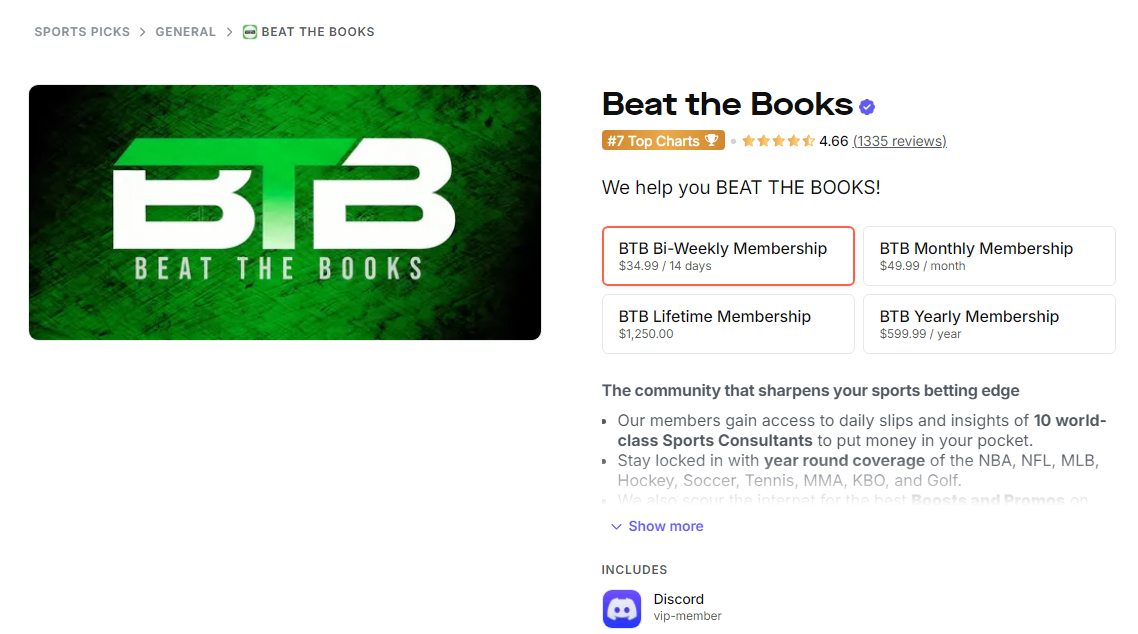
Online communities are a natural extension of the relationship-building you'll be doing on social media. They're a way to deepen that engagement by holding more nuanced conversations and encouraging discussions that last longer.
If you want to both keep your readers engaged and start making more money, set up an online community with Whop.
With Whop, you'll build a platform that lets you keep in touch with your followers in more ways than one. Setting up your own whop hub means that your readers will be able to chat with you and each other, post on a forum, and set up one-on-one calls. You'll be able to host live events and set up a book launch in no time.
Whop also comes with Discord and Telegram integration, meaning that all you need to do is set up the server and Whop will take care of giving people access.
You can charge money for access to any part of your community, from selling the books to setting up a monthly subscription for access to your entire platform. You can incentivize people to join by hosting Q&As just for the members or allowing them advance snippets of your work.
3. Try out ARCs
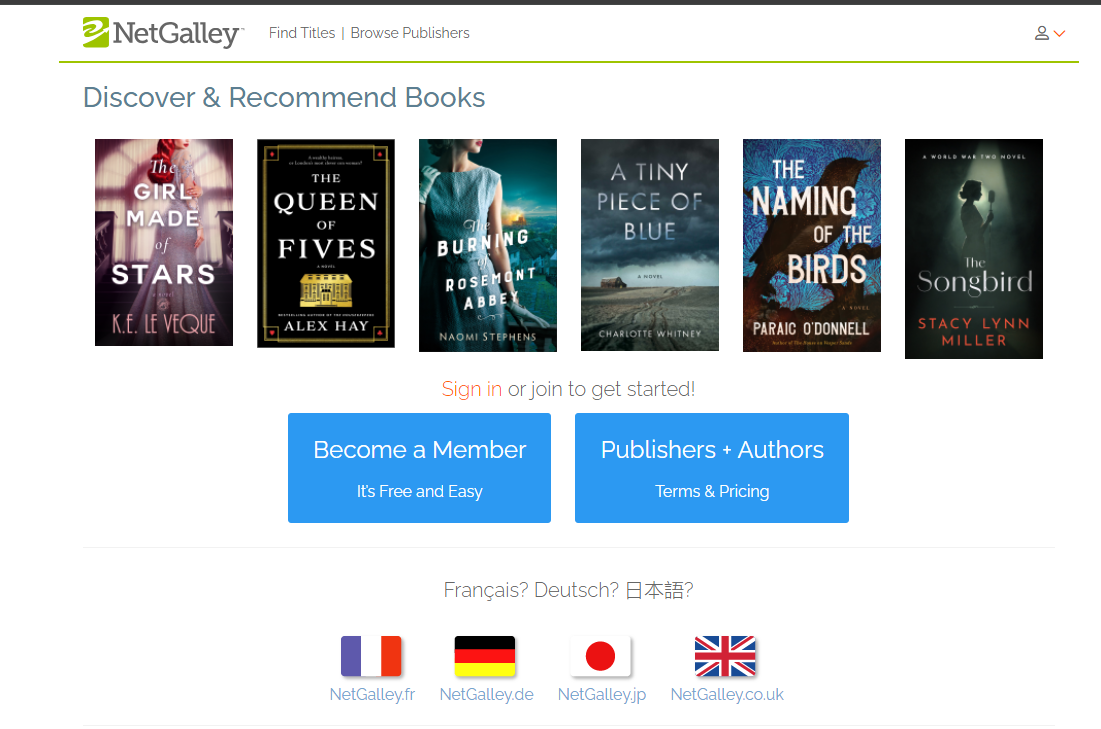
If you're new to the publishing world, ARCs are Advanced Review Copies. You can use websites like Booksprout and NetGalley to offer your book for free to early readers. In exchange, they agree to leave you an honest review.
ARCs are a great tool for building momentum for your book before the launch. Early reviews can be make or break since a lot of people will base whether they purchase or not on what someone else has said about the book.
To offer ARCs, decide which platform you want to use and sign up for it. There will be a fee associated. On NetGalley, the fee for a six-month listing is $550. This can pay out in the long run depending on how well your book sells, but if you're working with limited funds then consider carefully how you're dividing your budget.
Booksprout comes with a free plan, but there are also $10 and $20 monthly subscriptions that offer access to more reviewers and some additional features.
4. Create videos about your ebooks
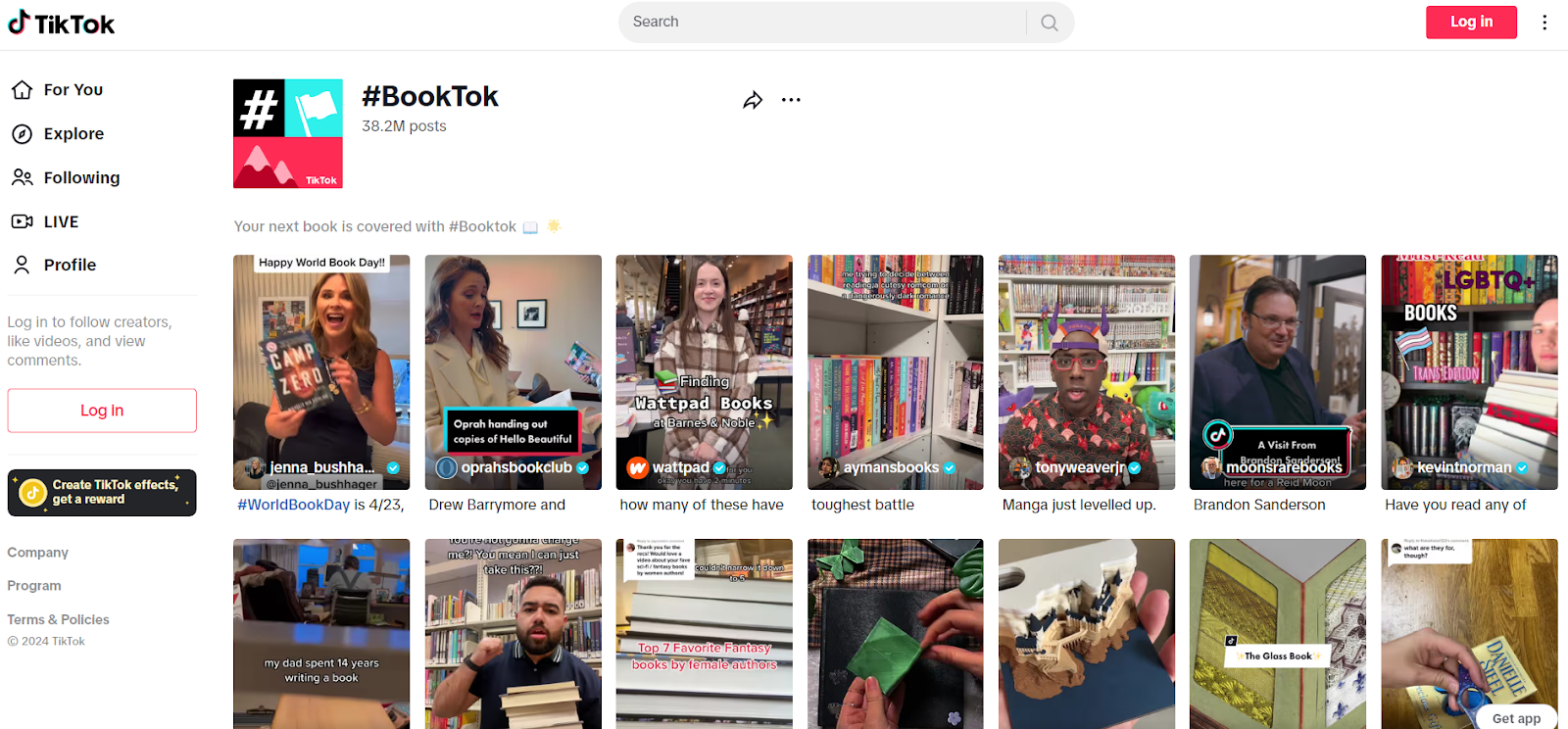
Books may not be visual media, but you can still use visual media to get people excited about your ebook. There are already thriving communities for this, like #BookTok on TikTok, but there's no limit to the type of videos you can share.
Let's say you're selling a guide to cryptocurrency, and more specifically, altcoins. You can create altcoin-adjacent useful videos and post them on your very own whop or on YouTube. Make sure to advertise your book in the process.
Organic videos often work best, and if you're able to provide knowledge and/or entertainment, people will watch your content anyway. (Which can become a source of income all on its own.)
5. Bundle your ebooks
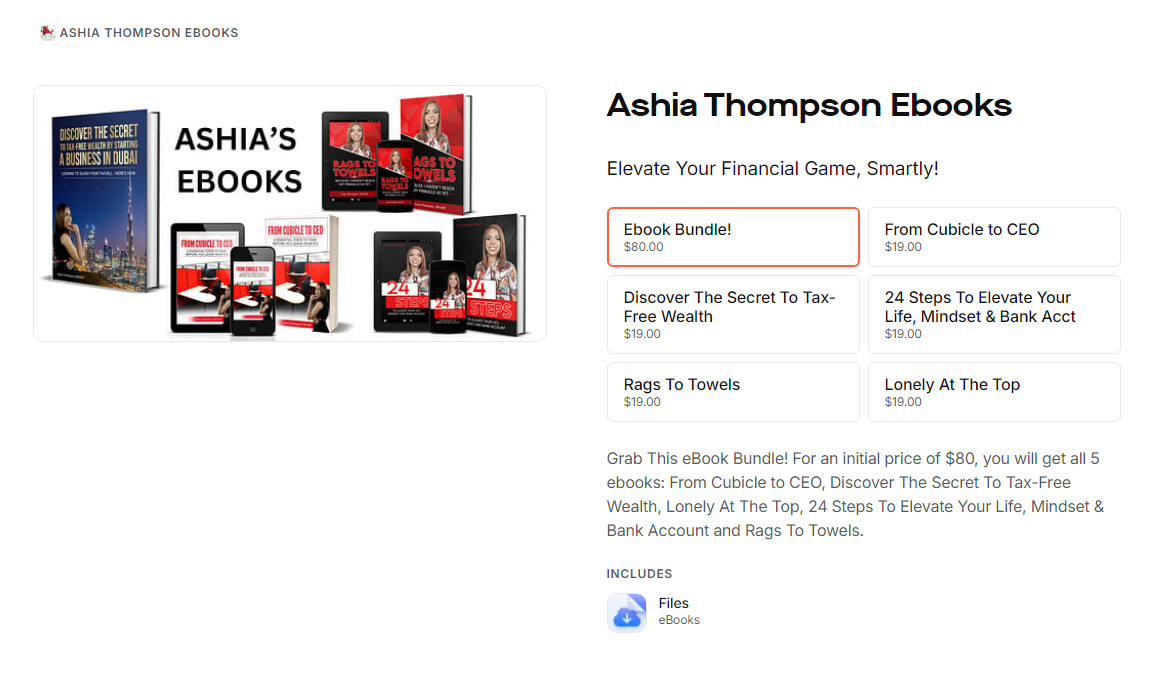
If you already have multiple ebooks written, you can offer them in a bundle to incentivize people to buy more at one time. Bundles offer a perception of more value, and hey, who doesn't love a discount?
Bundling digital products is easy with Whop. You can set separate tiered pricing for every product, making it simple to show the value of just getting a bundle instead of buying each book one by one.
You can even offer distinct bundles based on books in a series, or books that all follow the same theme or pertain to the same topic. Once you've decided on your bundles, you can promote your Whop marketplace listing on social media or through paid advertising.
Remember that you don't even have to bundle your ebooks with other ebooks—there are plenty of digital products that are hugely profitable.
6. Optimize your storefront
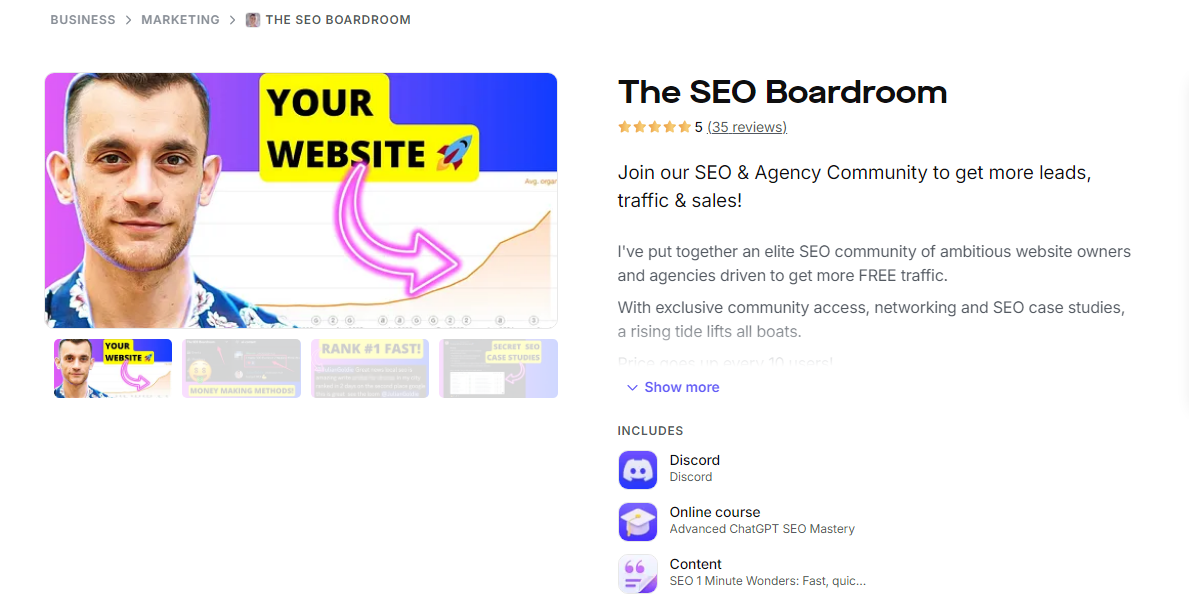
Picking out a platform is major. It's actually so important that we'll be revisiting that later in its own section. But once you've found the dream home for your ebooks, one thing you can do to boost your marketing is to learn all the ins and outs of search engine optimization, or the almighty SEO. This is essentially the process of choosing keywords to make sure your store comes up higher in search results when people are trying to find products similar to yours.
In order to optimize your storefront SEO, you need to figure out the best keywords for you. There are tools you can use for this, with varying price points. Here are a few to look into:
- Google Keyword Planner is free and good for someone just getting started.
- Ubersuggest is a keyword research tool with a free plan, and an individual plan starting at $16 a month.
- Semrush has a very limited free plan, with paid professional plans starting at $139.95 a month.
- Ahrefs does not have a free tier, but the basic plans start at a much more affordable $29 a month.
Remember you can always start with a free or basic plan on any of these platforms, and scale up to a higher level once you see that it's really helping to generate revenue.
7. Advertise in your previous ebooks
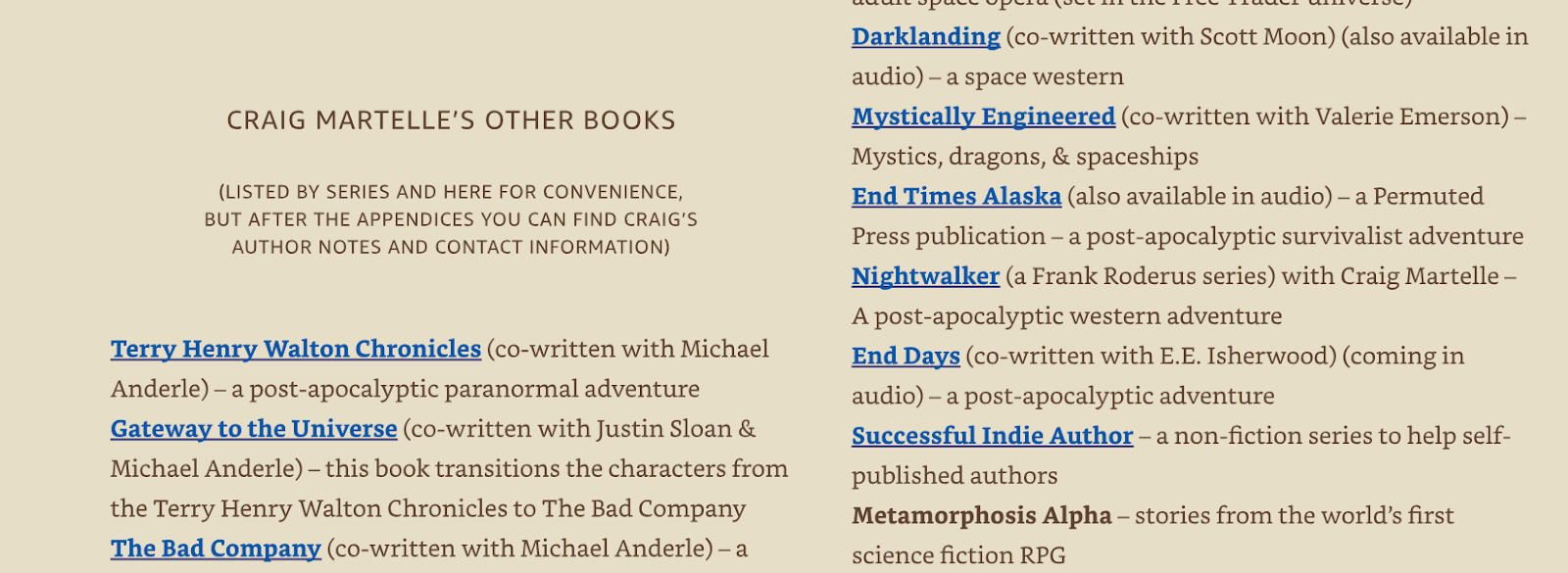
If you already have a catalog of ebooks, then there's really no better place to start advertising yourself than in a product of yours someone has already purchased! This marketing tip comes with absolutely no overhead costs and leverages an audience you already have.
All you need to do to take advantage of this advice is add a page to your existing ebooks. You can advertise a "coming soon" for a book that isn't released yet, or a "check out my new book" complete with the link and a snippet or summary.
You can see an example of this above. Craig Martelle, an author with an extensive catalog, dedicated a couple of pages in his book to link out to books that might be of interest to the reader.
8. Offer some content for free
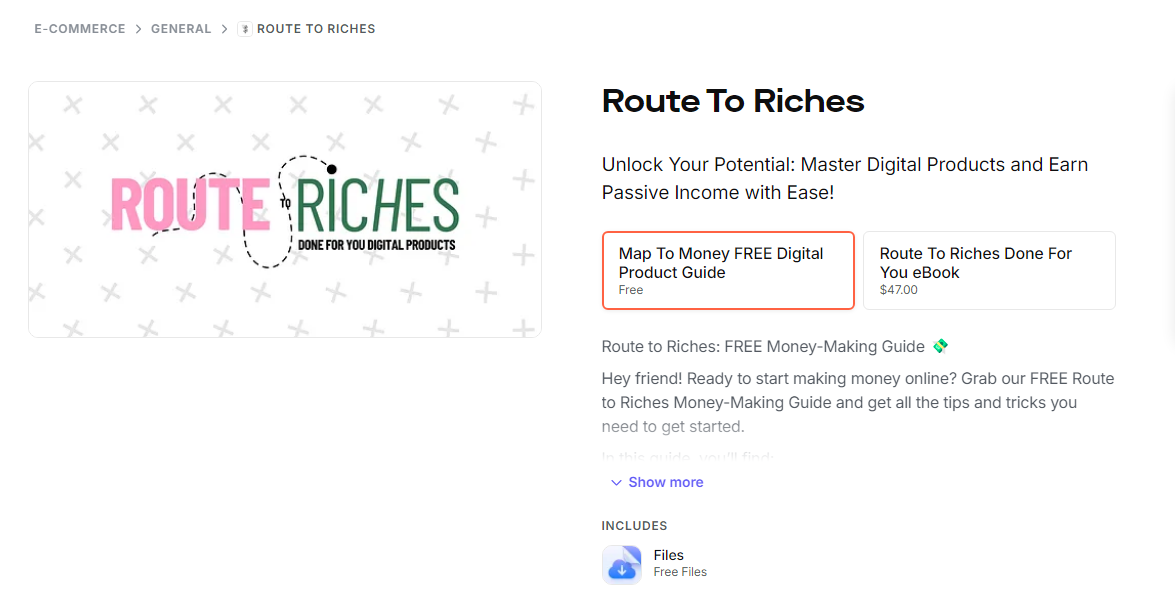
People love a freebie. Even people who otherwise might not have stopped scrolling are inclined to give you a few seconds of their time if they have the perception that they're being offered something without any kind of compensation needed.
With ebooks, you can do this in the form of sharing parts of your book that are already written.
Here are some ideas on how you can do that:
- Share it in a newsletter people have to sign up for
- Post it in a blog post
- Make a video to post on social media of yourself sharing it.
Just make sure you include a call to action at the end to remind people when and where they can buy the full thing. This strategy is especially easy to follow if you've written a how-to guide or a non-fiction book, especially if you're able to tease the end goal and the benefit of reading the whole thing.
9. Run exciting discounts
Discounts might not be quite as fun as getting something for free, but in this economy, who doesn't love saving money? This one technically does come with an overhead cost in the form of temporary profit margin loss, but it can make up for that by spurring people toward impulse buys they might not have otherwise made.
It's helpful to time your discounts around key events. This can be the holidays (think Black Friday or Small Business Saturday), or around personal events like a book launch or the opening of a new storefront.
Promotional periods are also great to share on social media. If you want to make sure it hits the widest audiences during the most key time periods, you can even spring for a paid social media campaign to advertise the discount period.
10. Set up a newsletter
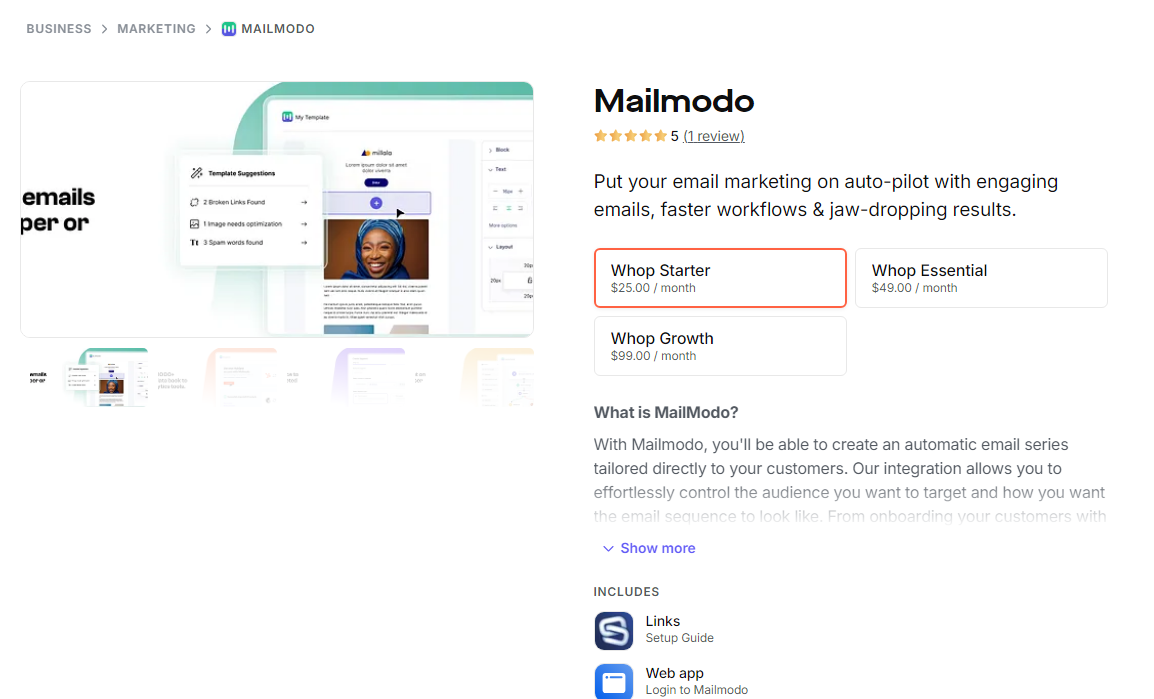
Newsletters are a good direct line to readers. They are a way to offer engagement that doesn't require a lot of individual responses to readers and the perfect way to keep people up to date on new books, new bundle offers, or promotions you're about to put up.
Another great part? They usually don't cost much to set up or manage. Whop offers Mailmodo integration, meaning that you can send out your newsletters and sell all sorts of digital products all from your whop.
- How do newsletters make money? 11 insider secrets
- How to create and launch your very first newsletter in only 8 steps
11. Start blogging or guest posting
Interacting with the community is the best way to get the word out. One of the easiest and most low-cost ways to start doing that is to reach out to blogs or newsletters that the relevant demographic is already familiar with.
You're essentially using someone else's audience to promote your own product. Some websites or influencers may expect you to pay for this; others are just happy to get some free relevant content and will link back to you in exchange for the post.
Offering to write a guest post or a blog entry for them is mutually beneficial. It allows a fresh take and perspective for the blogger, and in general just a bit of content they didn't have to spend their own time on. And of course, for you—a whole new audience gets to see your writing and learn what you have to say.
12. Team up with influencers and other authors
In the same vein as the last item on the list, look for influencers within your niche. This can be content creators who don't write books or even other authors.
Of course, don't forget that finding the right influencers for your brand is key here. If your content and theirs align in some way—or even just your interests—you can exchange shoutouts or send them your book for free for them to review.
If there's a notable difference in subscriber count or book sales, then you may have to offer some financial incentive for the collaboration. However, even if it costs you, influencer marketing can be worth its weight in gold.
13. Plan a launch event
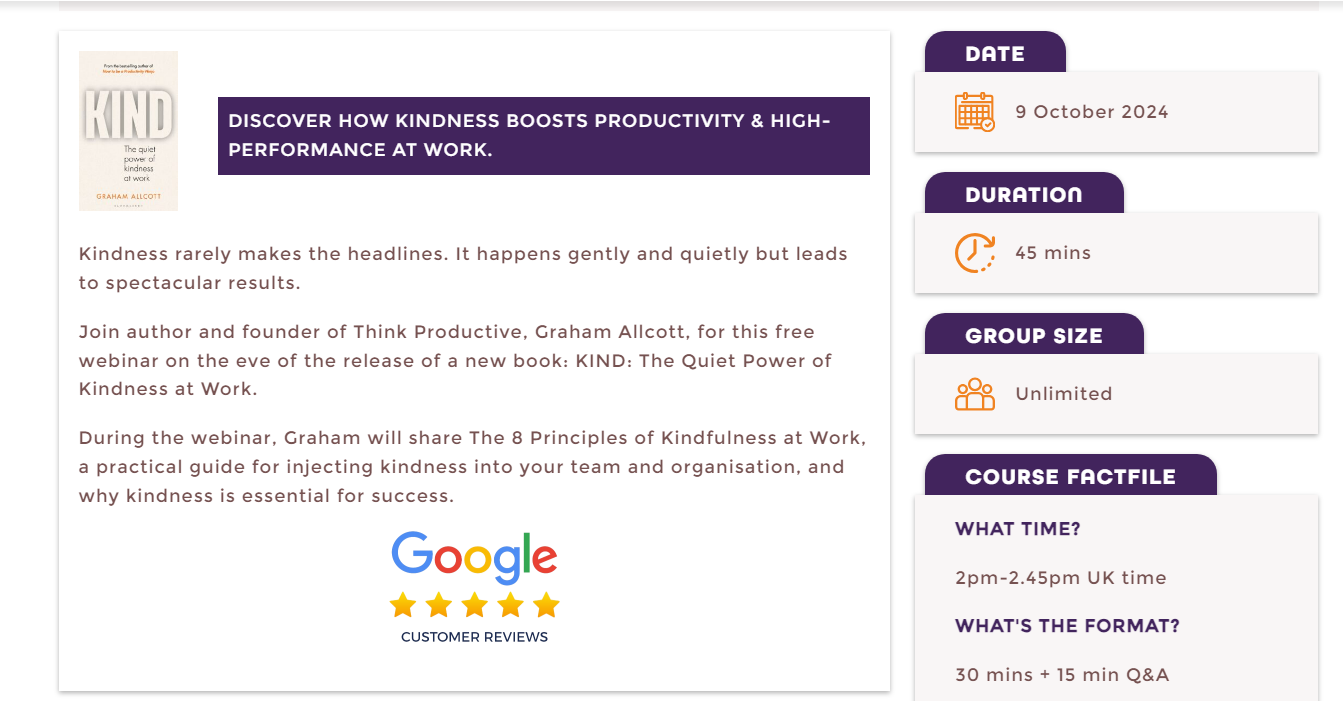
Launch events are probably the best way to celebrate the publication of a new book. The party-like atmosphere gets everyone excited, and they're flexible in that you can have them in person or online. (Or, if you're feeling very ambitious, both!)
In-person launch events will come with costs associated; like a venue, snacks, drinks, or prizes for attendees to potentially win. Attending a physical event with readers allows you to reach a deeper level of engagement more quickly.
But with virtual events, you can still motivate people to impulse buy your book or tempt them into an upsell offer. Virtual events are typically free, and in both scenarios, you can do a reading or a Q&A about the topic.
Virtual events are much more common for ebooks, so don't feel bad if that's what you decide to do. You can host an event easily with the Events app on Whop.
14. Create an online course
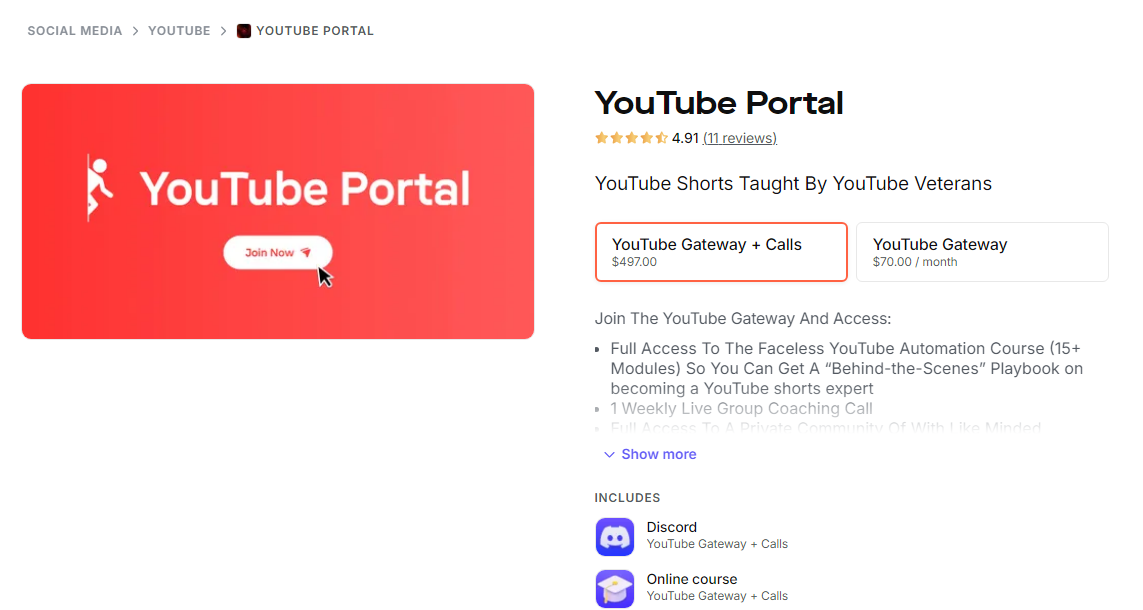
Depending on the subject of your book, you can make an online course to supplement it. This is particularly easy if your book is already instructional or educational in nature. Ebooks that teach the reader how to do something or explain a concept can be easily adapted into courses.
Marketing your online course can also be done in tandem with your book, meaning you have the branding already locked down. After that, you just need to outline the course, insert the content, and then format it.
Whop makes selling online courses easy, and you can do so from the same storefront that you sell your book from. You can even bundle them for extra profit.
15. Improve your ebook's SEO
We've already discussed SEO once, but it's important enough that we're bringing you back to it. SEO is not a set-it-and-forget-it style of marketing; it's important to look at the results your previous SEO keywords are bringing in and figure out if there's more that can be done, or if something isn't working.
This doesn't mean you're doing something wrong, it just means that SEO is a dynamic and constantly changing landscape.
Here are some things to make sure you're keeping an eye on and updating as you need to:
- Page titles and meta titles
- ALT texts
- Book description
- Keywords
As you can see, SEO is important not just in the product description, but also within the ebook itself.
16. Run a paid marketing campaign
Organic social media marketing can take you a long way, but sometimes it's worth it just to sink the money into a paid campaign. Paid ads give you access to important data on demographics, ensuring that your book is seen by people who fit your target persona.
The cost will vary depending on the platform and how much reach you're looking for, meaning that you can adjust the campaign based on your specific budget.
You can run ads on pretty much any social media platform, although many people have a lot of success with Facebook ads—but if your target demographic is elsewhere, your campaign needs to be where they are.
17. Encourage readers to review your ebook
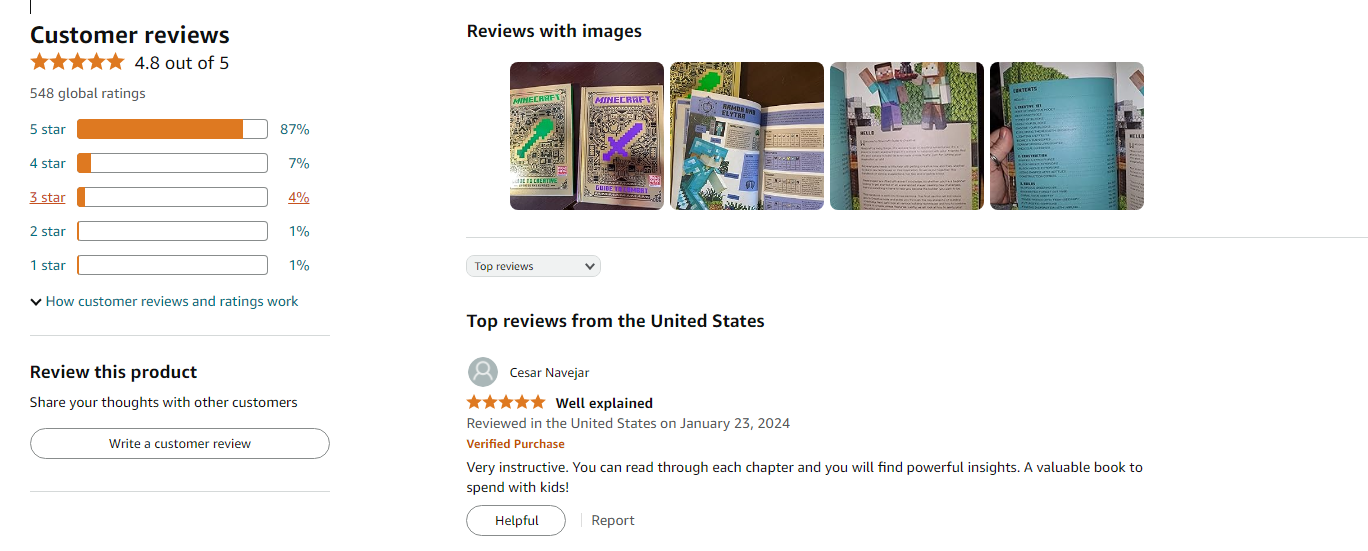
This is another totally free one. The only thing it's dependent on is having readers to begin with, which you can get by following some of the other tips on this list. At the end of your book, just ask readers to leave you a review.
Reviews from existing readers who purchased your book can help build your credibility with potential readers, so it's a win-win. They also improve your visibility given that some people are likelier to search for books that someone is already vouching for.
You can also share the reviews you get on social media or in a newsletter. It's a good way to get the word out that yes, your book's awesome, and others agree with you.
18. Start a podcast
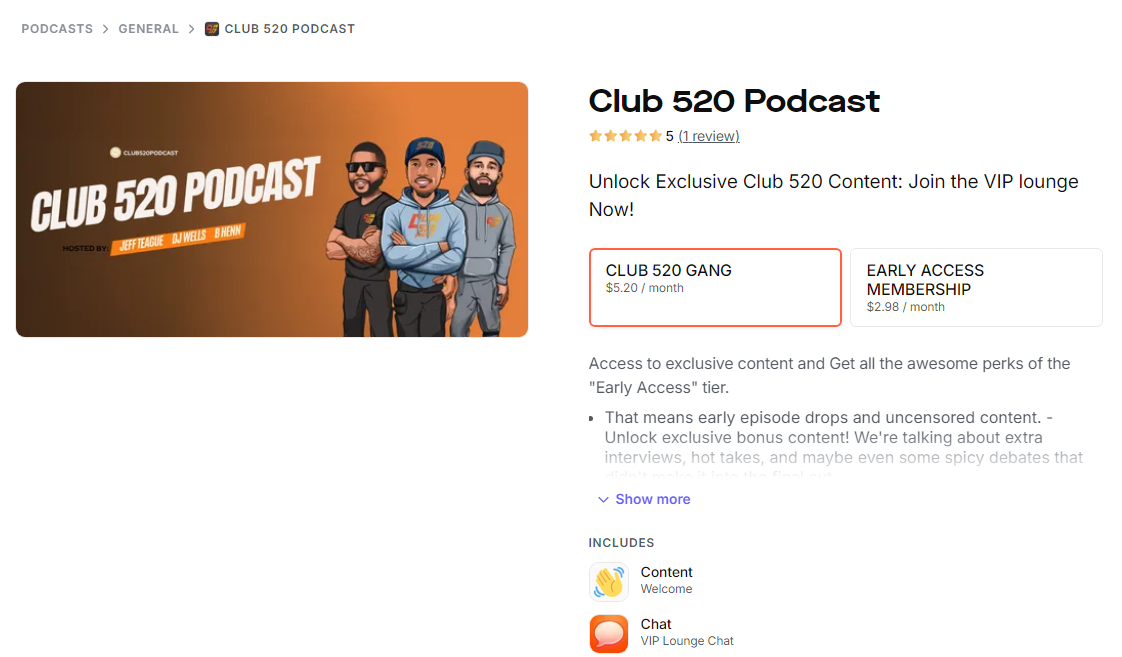
If the idea of hosting your own show is appealing, then a podcast is an amazing way to foster long-term engagement with readers.
Your podcast can be centered around a theme of your writing, the process of writing and publishing itself, or the topic that you write about. You can set a schedule that you want to stick to for posting (once a week, twice a month, etc.) and decide on a rough format for it. Podcasts are also a great way to keep ties with your peers by inviting them on as guests.
To make a podcast, you just need to decide on a platform to host it and buy some equipment. The prices of microphones vary, so this can adapt to fit your budget and you can always increase quality as your podcast itself starts to bring in revenue.
A podcast goes a long way toward presenting yourself as a subject matter expert (SME). Once you build up a listener base, those people will be much more eager to buy your ebooks since they already know you're worth listening to.
19. Host a webinar or a live Q&A
Another good way to engage with your audience, but with less time commitment than a podcast, is to host a webinar or a live Q&A. You can host these on platforms like Zoom or Teams and then send out the link using the Events app on Whop.
You can have people submit questions beforehand if you want to keep them on topic, or you can just wing it and see what people want to know. Every webinar or Q&A should have an overarching theme though, and that theme should be your book or topics adjacent to it.
You can also offer Q&As on Discord to community members, whether it's a free community or paid. This kind of live engagement gets readers excited for what's to come and makes them feel involved.
20. Get others to promote your book with affiliate links
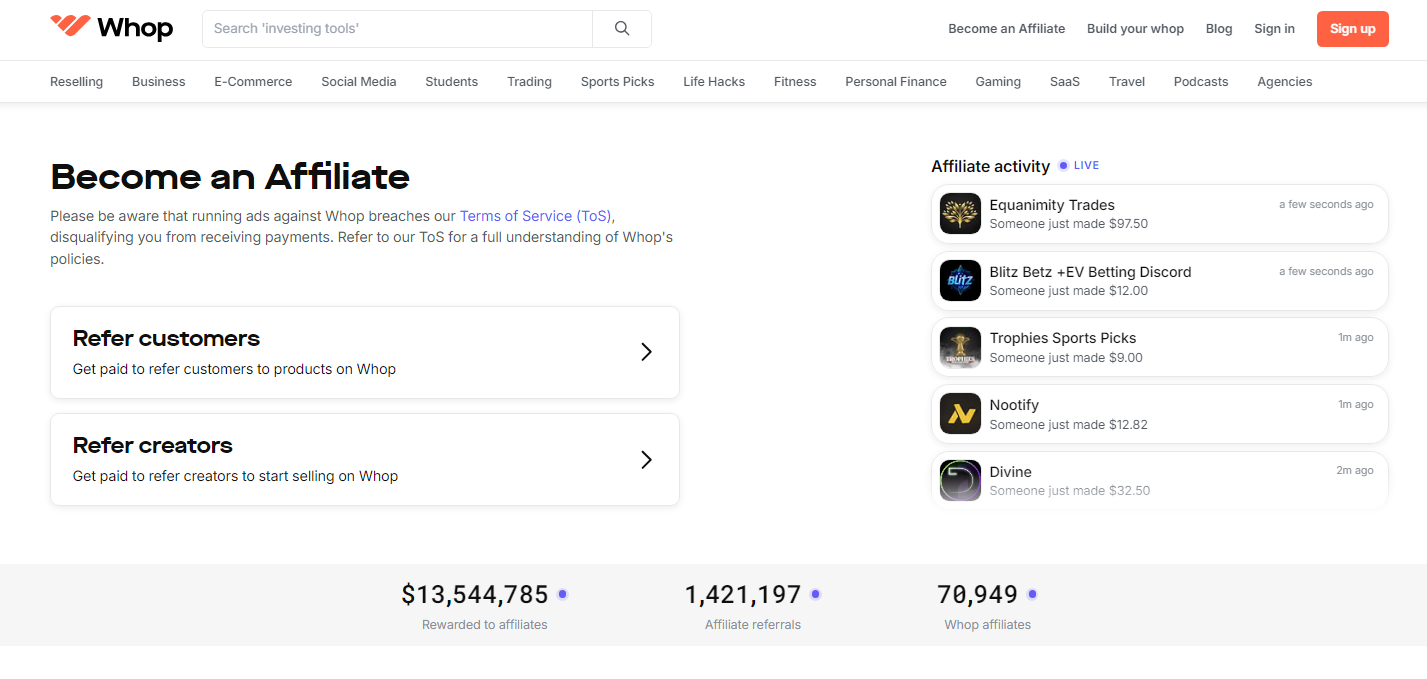
Promotion can come in many forms, and affiliate links are a great way to get people involved in a way that helps you both out.
With affiliate marketing, people can share the link to your product and when a purchase is made through their unique link, they get a cash reward. The affiliate commission is set by you, so you can adjust it based on the value you think the affiliate promotion is worth.
Whop has an affiliate program that allows creators to reap huge rewards for promoting products within the Whop marketplace. This kind of mutually beneficial system ups your sales and gives the people sharing your link a little something for their time, incentivizing further shares.
- How to use the affiliate links app on Whop
- High-ticket affiliate programs to turbocharge your earnings
Why social selling is the ultimate way to market your ebook
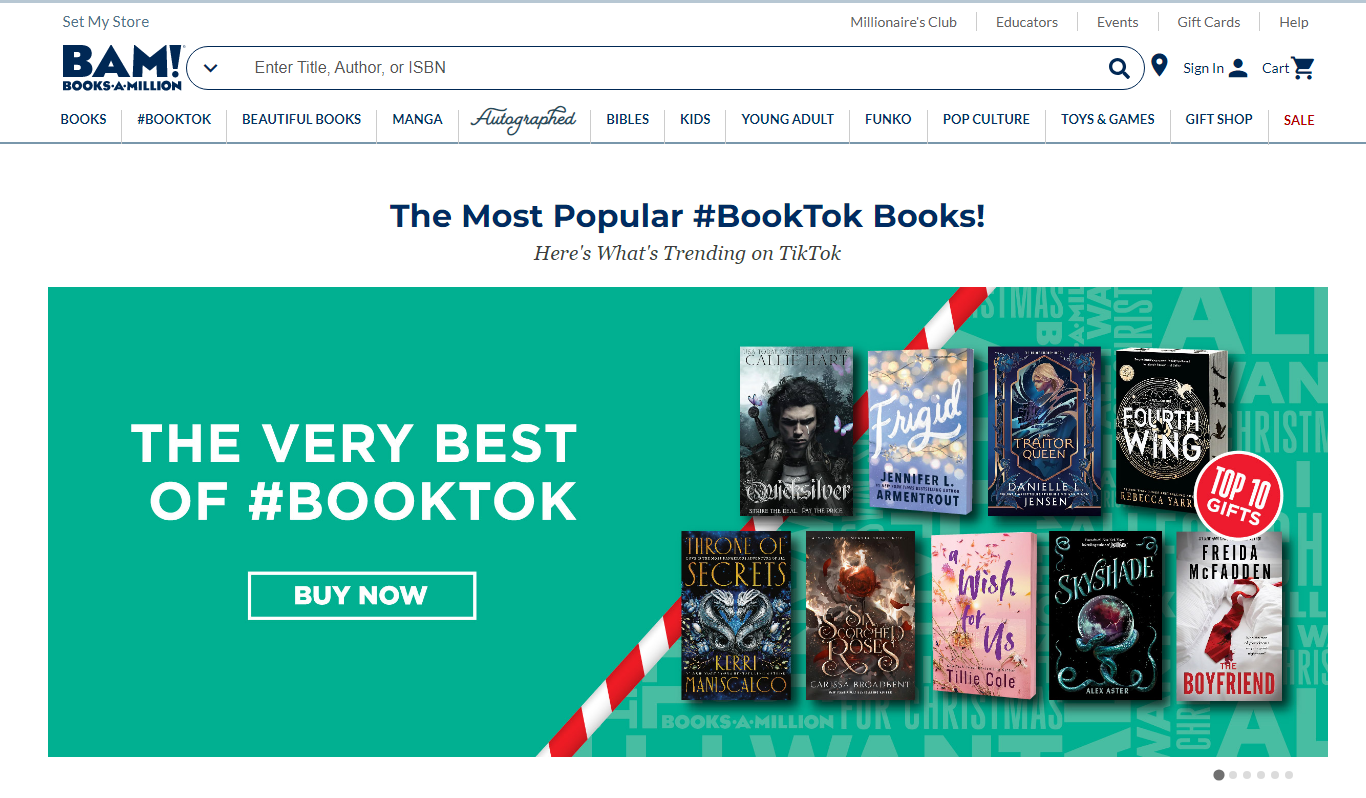
Have you ever heard of social selling? The term refers to using social media platforms to build relationships, engage with people who might become your customers, and drive sales in a super organic way.
Social selling is why the first item on that list above is "get on social media." It's become a vital part of getting your book—or any book, really—to become successful.
A fantastic example of social selling is, of course, TikTok's book community, known as #BookTok. BookTok garners over 70 billion views per year—a figure that's impossible to fathom ever reaching anywhere besides the social side of the internet. Those views are worth their weight in gold, as proven by the many authors who succeeded thanks to organic promotion through TikTok.
Let's look at a recent example. Colleen Hoover's book “It Ends With Us” went viral on BookTok and saw a 627% increase in sales, which pushed her book to over one million sales in a single year.
BookTok not only influences sales online, but it's also beginning to have an impact on the physical book sales world, as well. Publishers are adjusting marketing strategies all around to incorporate social selling, which means that many people are starting to grow accustomed to it.
Social selling helps drive audience engagement, forge trust and relationships with your readers, and is a fantastic source of word-of-mouth marketing.
No matter the niche, leverage social selling and building a brand to drive more sales.
How to market your ebook from scratch
If you want to get into the ebook game, the key to marketing is to understand what your book is and who you want to sell it to.
Here's everything you need to know about marketing your ebook from scratch.
1. Know your niche
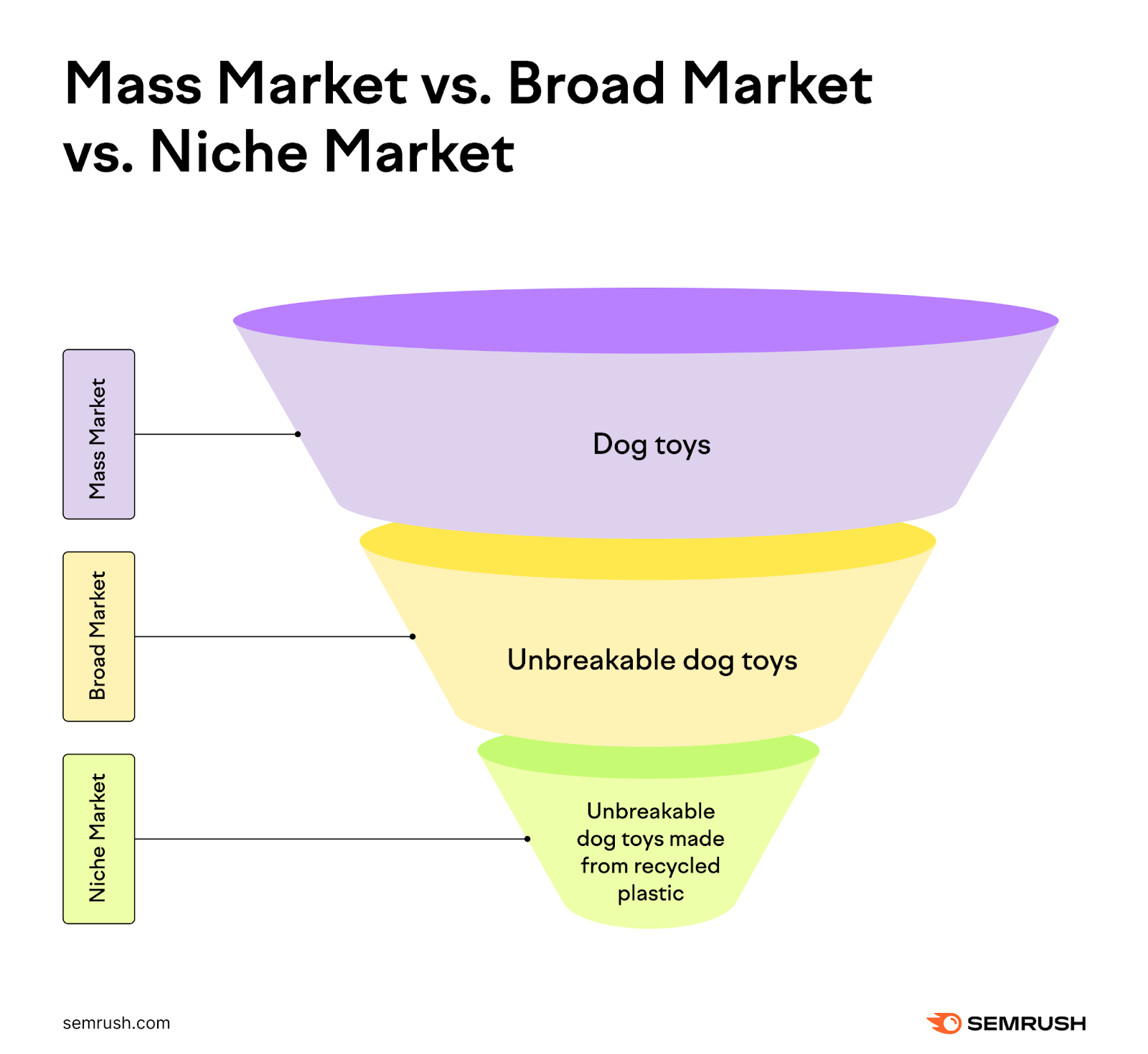
It is important to know who you're writing for, both before you start writing and after you're finished.
This will help you figure out where your ebook fits into the market, and from there, the best way to sell to that audience. Not every demographic responds to marketing the same way! Some curation is required.
Research the kinds of books that already exist in your niche, and look at how your book stands out. You can get started on this research by checking out Reddit discussion forums or reading the Amazon reviews of other books similar to yours.
Remember that choosing a niche doesn't mean limiting your reach. It might, in a way, but it means reaching more people who might be interested in your particular ebook. Instead of writing a book on a broad topic, such as finance, consider writing about something fairly niche—such as investing in REITs.
As long as you can provide a solid amount of knowledge on the matter, people will be likelier to buy your book and pay a nice amount of money for it.
2. Make your ebook the best it can be
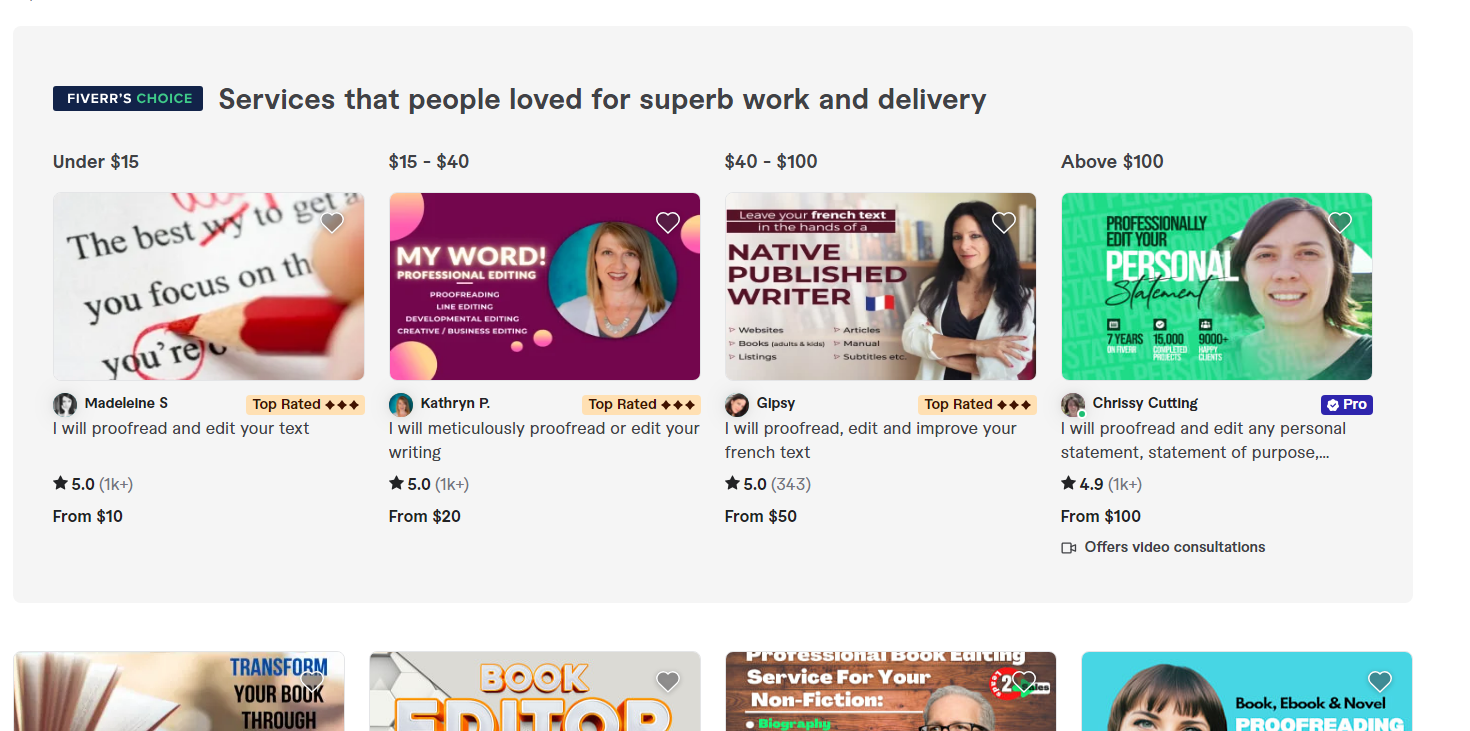
You might be writing your book from home in your pajamas with a bag of Doritos open beside you, but that's no excuse not to be professional. Your ebook needs to be as polished and mistake-free as you can possibly make it!
If you have any friends with a keen eye for spelling, grammar, and cohesion you can ask them to look over it for you. If you don't know anyone to ask, you can find proofreaders for a fee on websites like Upwork, Reddit, or Fiverr.
Hiring a professional editor often isn't cheap, and you may be better off paying more to get one worth their salt, but it all comes down to your budget.
3. Optimize your ebook for SEO
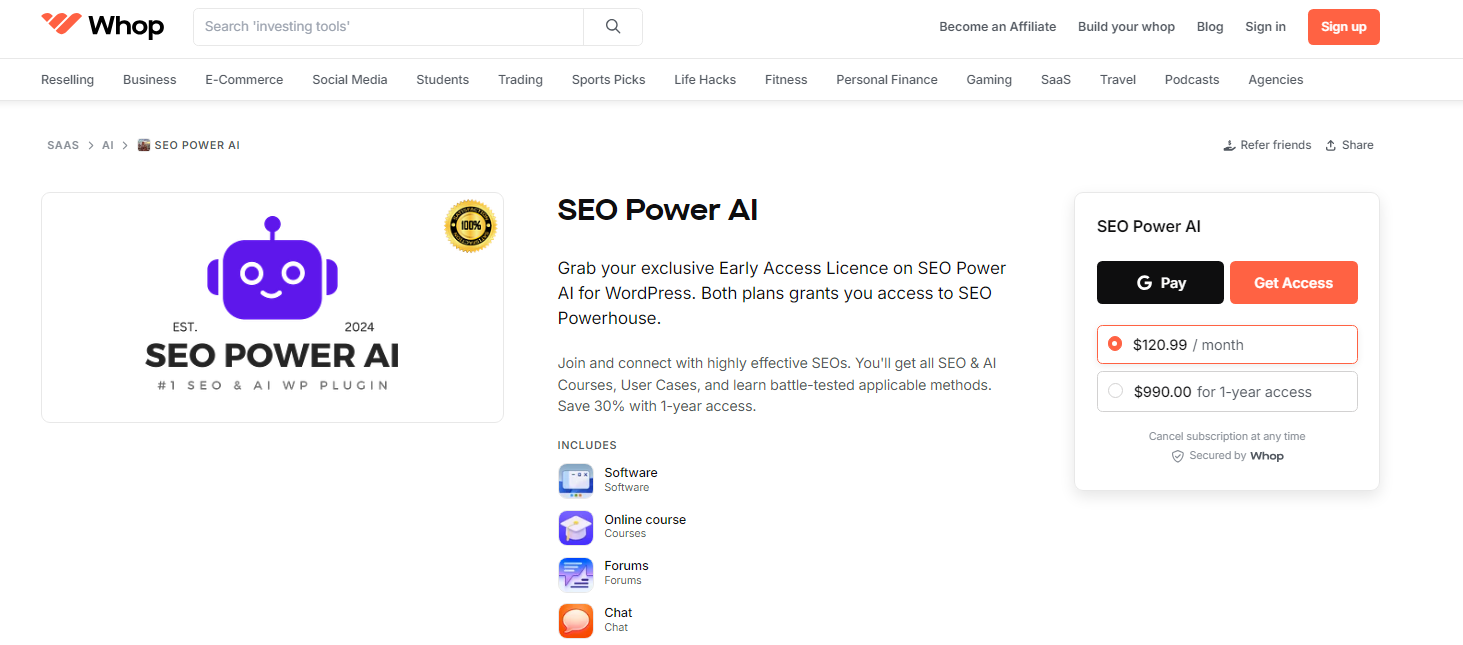
SEO is the key to being seen in search engines, be it Google or the search engine on your marketplace of choice. This is why it's crucial that you follow SEO best practices both in the book and in various product descriptions.
Here are a few tips to get you started:
- Choose targeted keywords; tools like Google Keyword Planner or Ubersuggest can help
- Target high-volume, low-competition keywords
- Optimize your book title and meta title
- Use SEO in the book description
- Create a professional author website or blog (again, with the right keywords)
- Optimize your images for SEO and the standards in your niche, including descriptive file names and ALT text
- Try to get backlinks from reputable websites
- On your marketplace of choice, make sure to use tags and categories
If you're not sure how to get started, consider joining a community like The SEO Boardroom to learn from experts.
4. Create a fantastic cover
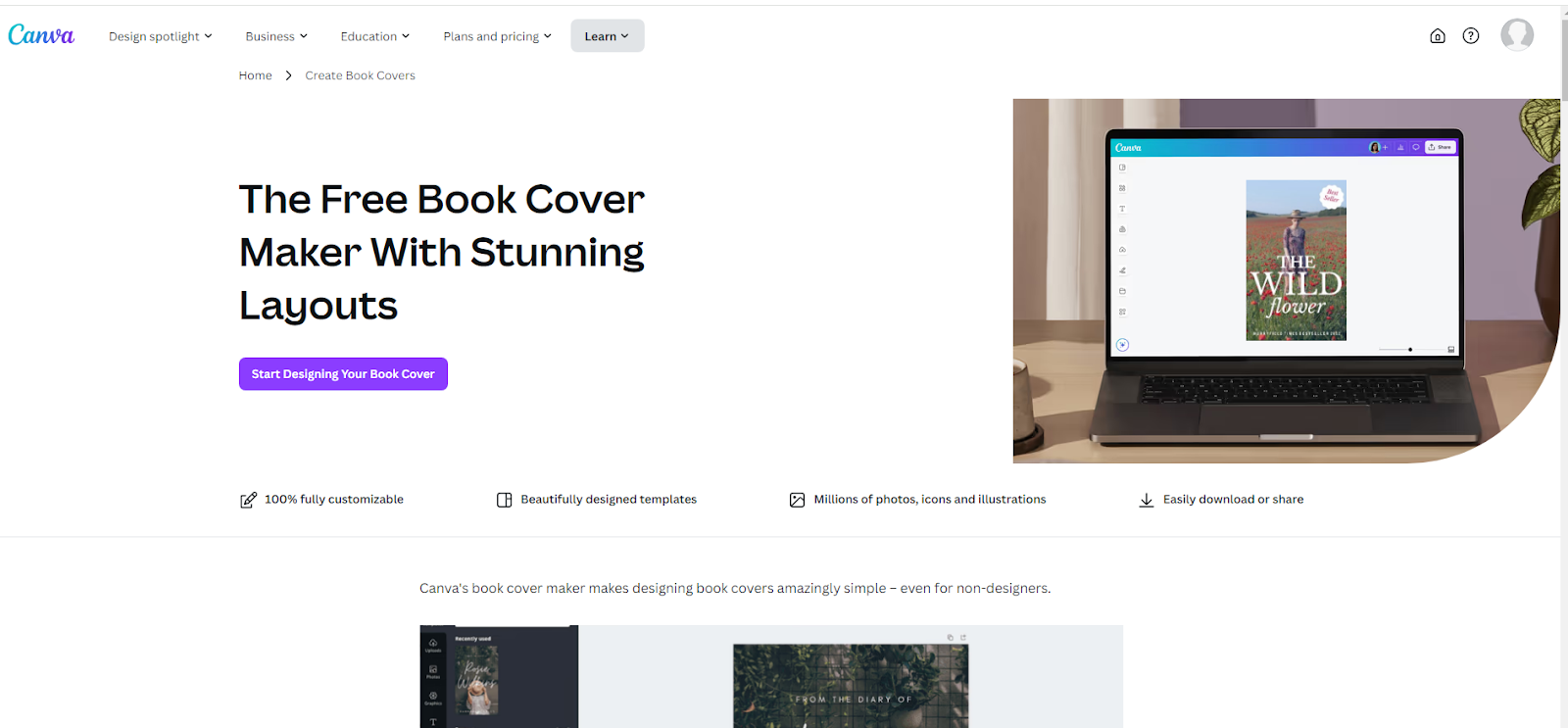
Have you heard the saying about not judging a book by its cover? Well, tough luck—people definitely do that, which means your cover needs to look good. People are more likely to pass over a bland or poorly designed cover without even stopping to look at it.
You don't have to be an artist to make a good cover. If you have no budget, you can use an online design platform like Canva to design one for free.
Before you do, though, I recommend that you check out some other books in your niche to see what the competition is doing. Believe it or not, covers are a crazy blend of unique and generic. Just compare teen romance books to sci-fi trilogies and you'll see what I mean—there's definitely a theme to stick to in every niche.
If you have a little more money to put toward it, you can search for designers on websites like Fiverr or 99designs.
5. Pick the right platform
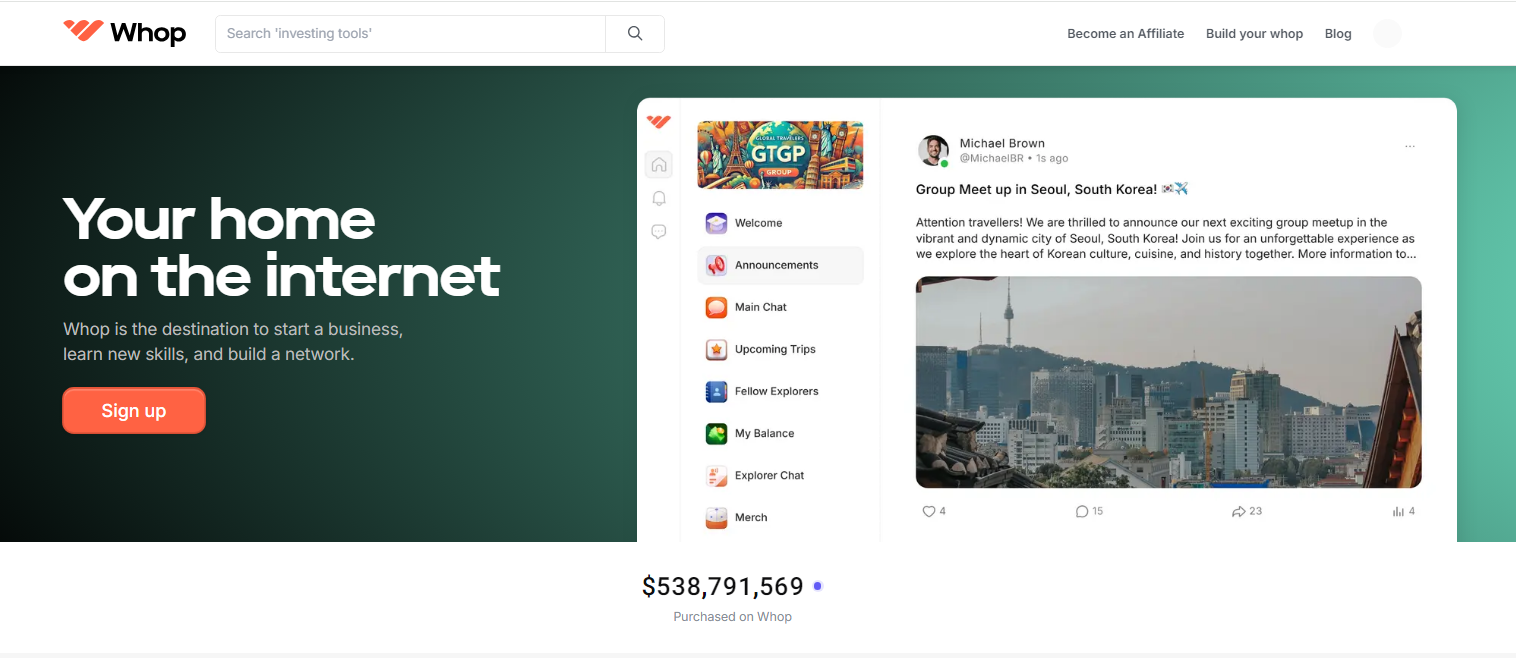
There are a lot of good platforms out there to sell your ebooks on. Some, like Amazon, Gumroad, and Apple Books, offer you the benefit of a bigger marketplace but are less geared toward making sure you as the author receive fair payment for the work that you've done.
Remember that thing I said above about being in a saturated market? Well, selling through Amazon pretty much guarantees that you'll have lots of competition. It's often better to pick a platform that's more tailored to the needs of a creator on the rise, such as Whop.
Whop not only has a substantial marketplace for you to sell through but also allows you to keep up to 97% of your sales revenue. This is a staggering difference compared to Amazon Kindle Direct Publishing, which keeps anywhere from 30% to 65% of your income from sales.
Whop also lets you bundle books with all sorts of other digital products. Instead of just selling books, you'll be creating a comprehensive platform and building a brand. Getting started takes mere minutes—check it out.
6. Scope out the competition
You might not be allowed to copy off your neighbor's paper in school, but all's fair in love and ebook sales. One of the best ways to know how to get something right is to check out someone who is and do what they're doing.
Find other ebooks in your niche and study their descriptions, pricing, and their book covers. Take note of the things that seem to really be working for them, and do the same but with your own flair to it.
7. Plan out your marketing strategy
When it comes to your marketing strategy, you need to be… well, strategic! Remember that you don't have to do everything at once. In fact, you probably wouldn't be able to even if you did want to give that a shot.
Consider the limitations of your time and budget, and pick out two or three marketing tactics you want to start with. It's helpful if you also think of it in terms of what makes logical sense to do first.
Make your social media accounts early so you can update them throughout the writing process. ARCs need to be sent out in advance of your book being published, so focus on that ahead of strategies that wouldn't need to be implemented until after publication.
8. Start advertising on social media

Social media is the best place to give off the impression that you're just casually hanging out with your audience. While it should feel personable and not like a nonstop sales pitch, you should start advertising your book there as soon as you can.
There are ways to do that without coming off like a walking commercial. You can post behind-the-scenes videos as you work on it, answer questions that are asked of you organically, post snippets of the book and ask for opinions, or offer a promotion specifically just to people who follow you.
Get started with this early on in your strategy, as the benefits can be huge and the time investment is a lot smaller than the time you've already put into writing your book.
9. Notify your readers

As soon as you have a publication date, don't call your friends—call (or notify) your readers! You can do this using whatever means you've already created; a blog, a newsletter, social media, your whop, etc. This information needs to be out there on every single platform you're on.
If you want to make it an extra special event, you can even send individualized messages to your biggest supporters with an exclusive discount. This will not only make them feel as though they're rewarded for being loyal and engaging with you, but it'll also incentivize them to go ahead and buy the book.
10. Launch the book
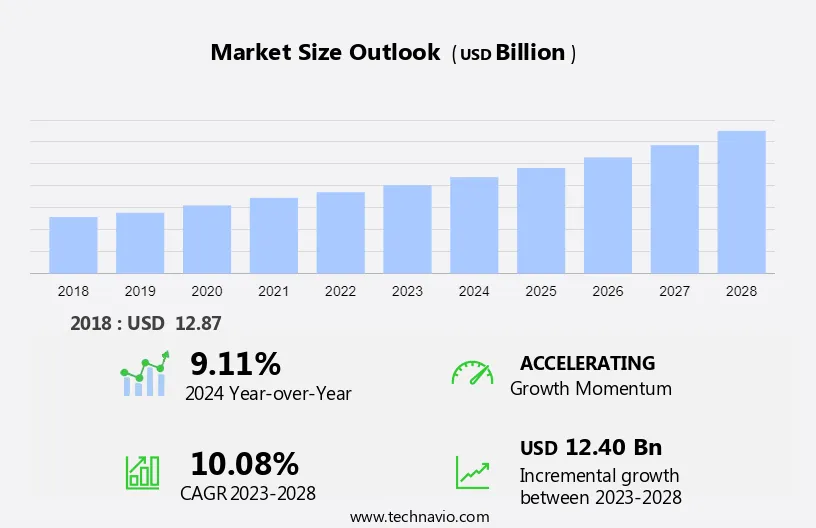
Launching your book should feel like a celebration and one that isn't just for you. The launch should feel like a party for everyone that has been following along as you write it.
You can host a virtual launch event or one in person, run giveaways or contests, or even offer a select number of followers a free copy in exchange for their review.
This kind of event can generate excitement that leads to the organic sharing of both the event and your book. Take advantage of people's natural desire to have some fun. Most of all, celebrate—writing a book is no small feat!
11. Check analytics and adapt
Once your book is on the market and you've already implemented a lot of these marketing tactics we've covered, don't forget to check back and see what's working.
Most platforms offer their own form of analytics interface, and you can also use outside ones like Google Analytics to track sales, reader engagement, and where your traffic is coming from.
Once you know what's working, do more of that. If you see that your paid campaign on Instagram is working better than Facebook, move more of your funds to the play where they're paying off best. Constantly be monitoring and ready to tweak your strategy as you need.
Remember that there's no end to marketing when it comes to digital products like ebooks, but the more you do of it, the easier it gets. Starting from scratch takes time, so don't be discouraged and keep trying to see what works best for you and your unique brand.
Make money selling ebooks with Whop
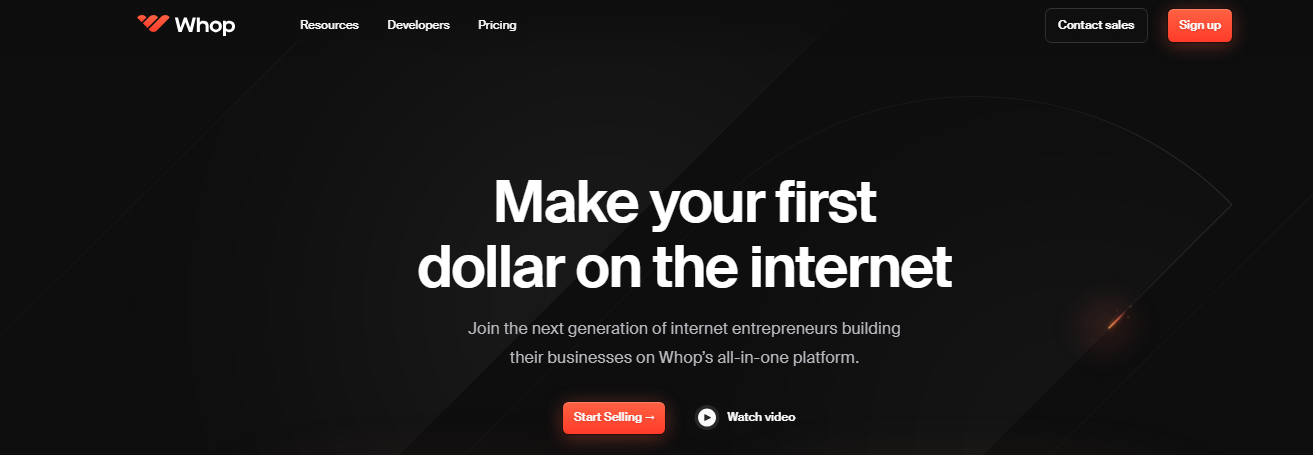
Whether you're just starting out or you already have dozens of published works under your belt, marketing an ebook is closely tied to finding the right place to sell it.
Finding customers can be easier or harder depending on your platform, and the whole process of marketing is easier if you're working with a platform that knows what you need to succeed.
Whop is the best place to sell your ebooks. With Whop, you get everything you need to successfully launch, upload, sell, and market your ebook all in one place.
Creating your very own whop means that you'll be able to sell as many books as you want, and if you join the Whop Marketplace, your work will be visible to hundreds of thousands of people who might not have found it otherwise. Even without joining the marketplace, you can set up your storefront and market it using any of the ways described above.
You can bundle your ebooks, and not just with other books. Whop helps you sell all kinds of digital products, including one-on-one calls, access to paid events and communities, video tutorials, behind-the-scenes content, and online courses.
With tiered pricing, flat fees, and monthly subscriptions, you decide how you get paid, and you'll retain up to 97% of each sale.
Use a platform that supports you as a creator and lets you focus on growing your business.
FAQs
How can I advertise my ebook?
To advertise your ebook, you should use a combination of organic social growth and paid marketing tools. For social growth, use platforms like Facebook, Instagram, TikTok, X, or Discord communities. For paid marketing campaigns, you can approach each platform individually to target readers in your niche on social media. Don't forget about Google Ads, too; that will make sure that your ebook shows up in the results of related topics on search engines.
How to make an ebook go viral?
Going viral isn't easy to plan for, but you'll never have a book spark into a fire on social media if you don't put yourself on those platforms to begin with. You should cultivate a strong, engaged audience and study what makes similar ebooks go viral in order to mimic that to the best of your ability. Pay attention to hashtags, trends, and what kind of content you can make around your book that has the best chance of being shared.
Are ebooks profitable?
Ebooks can be very profitable. They have an advantage over their physical counterparts in that there's no overhead to write or even publish an ebook, and no reason that you can't keep selling it indefinitely once it's finished. This makes them a solid source of both passive and active income.

